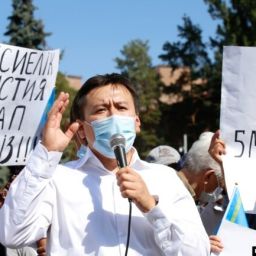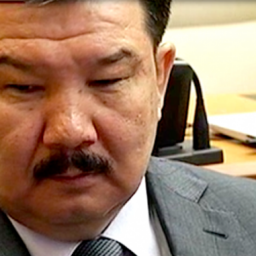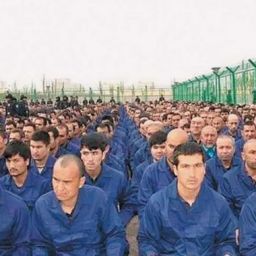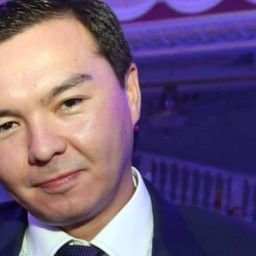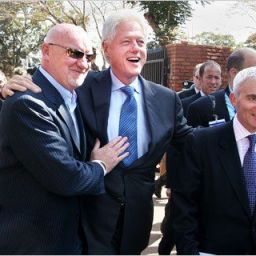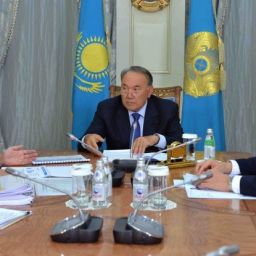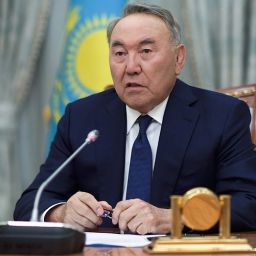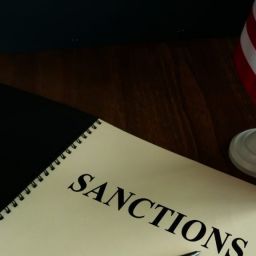China’s state-owned corporations are acquiring strategic resources around the globe, including locking in nuclear fuel supplies from Kazakhstan.

In April 2021, at the virtual global climate summit hosted by the United States, Chinese President Xi Jinping declared his country’s intention to start reducing its coal power generation in 2026, and reach peak carbon emissions before 2030. The announcement followed the issuing of China’s 14th Five-Year Plan, published in March, in which Beijing laid out its objective to increase nuclear power generation from 50 gigawatts (GW) to 70 GW in just five years. Nuclear power is a key component of China’s plan to reduce its carbon emissions and win the global clean energy race. With 17 plants currently under construction, China is undertaking the world’s largest nuclear power plant building program. According to Luo Qi of China’s Atomic Energy Research Initiative, “By 2035, nuclear plants in operation should reach around 180 GW,” almost quadrupling China’s current nuclear power generation in 15 years.
On the heels of Xi Jinping’s announcement in April, China finalized a nuclear fuel deal with Kazakhstan’s national atomic agency, Kazatomprom, the largest uranium supplier in the world. State-owned China General Nuclear Power Group (CGNPC) and Kazatomprom formed a joint venture to build the Ulba Nuclear Fuel Plant, giving China a 49 percent stake in the plant for $435 million, and guaranteeing that CGNPC will purchase 49 percent of the plant’s production annually. The initial investment from CGNPC, and its subsequent purchases, will enable Kazatomprom to ascend the value-added ladder and operate along the entire front end of the nuclear fuel cycle. The agreement also guarantees a buyer for the new plant’s production in a world of unpredictable demand for uranium and its byproducts. After the 2011 nuclear disaster in Fukushima, Japan, nuclear power became politically controversial and global uranium prices collapsed. China and Kazakhstan’s proximity and shared border will facilitate overland supply by railroad, avoiding foreign jurisdictions and the potential security risks posed by transporting uranium through them.
The CEO of Kazatomprom, Galymzhan Primatov, recently stated that China’s uranium acquisitions surpass its current demand: “Сomments coming from China around discussions to build strategic stockpiles are something I think market participants are missing. So today, long-term security of supply is undoubtedly a focus for the Chinese new-build program.” China’s growing purchases could indicate that China wishes to lock in supply while it is cheap, or that it is hedging against potential future sanctions or supply-chain instability.
Considering that CGNPC has been sanctioned before by the United States for its links to China’s military, it would not be surprising if this agreement with Kazakhstan is viewed with concern in Washington D.C. The United States for some time has been alarmed by China’s state-owned corporations acquiring strategic resources around the globe. In May, Ivan Glasenberg, the CEO of Glencore, the world’s largest commodities trader, publicly warned that China was building a leading position in strategic commodities through investments, often made under the framework of the Belt and Road Initiative. In 2020, several months prior to the deal with Kazatomprom, another Chinese state-owned entity, China National Nuclear Corporation (CNNC), purchased the Rossing Uranium Mine in Namibia, the second-largest producer of uranium in the world. The Chinese government, by acquiring assets abroad, has created a global supply chain for strategic resources under its ownership.
Despite the widely held belief that Russia and China have increasingly close relations, this agreement will no doubt elicit unease in the Russian government. With its new nuclear fuel plant, Kazatomprom becomes a competitor to Russia on the global nuclear materials market – one of Russia’s core export sectors. Russia has traditionally been Kazatomprom’s largest business partner, but now, China provides Kazatomprom an alternative — one with deep pockets — as a counterweight to Russian influence. China has gradually nibbled away at Russia’s privileged position in Kazakhstan’s strategic economic sectors, and this deal was perhaps its biggest bite yet.
The Diplomat by Gregory Xanthos
Gregory Xanthos
Gregory Xanthos is an independent Central Asia analyst. From 2018–2020, he was based in Kazakhstan with an American NGO. Prior to this, he worked with U.S. agencies on non-proliferation projects in the former Soviet Union. He has taught Russian and Eurasian Studies at George Washington University and George Mason University.

